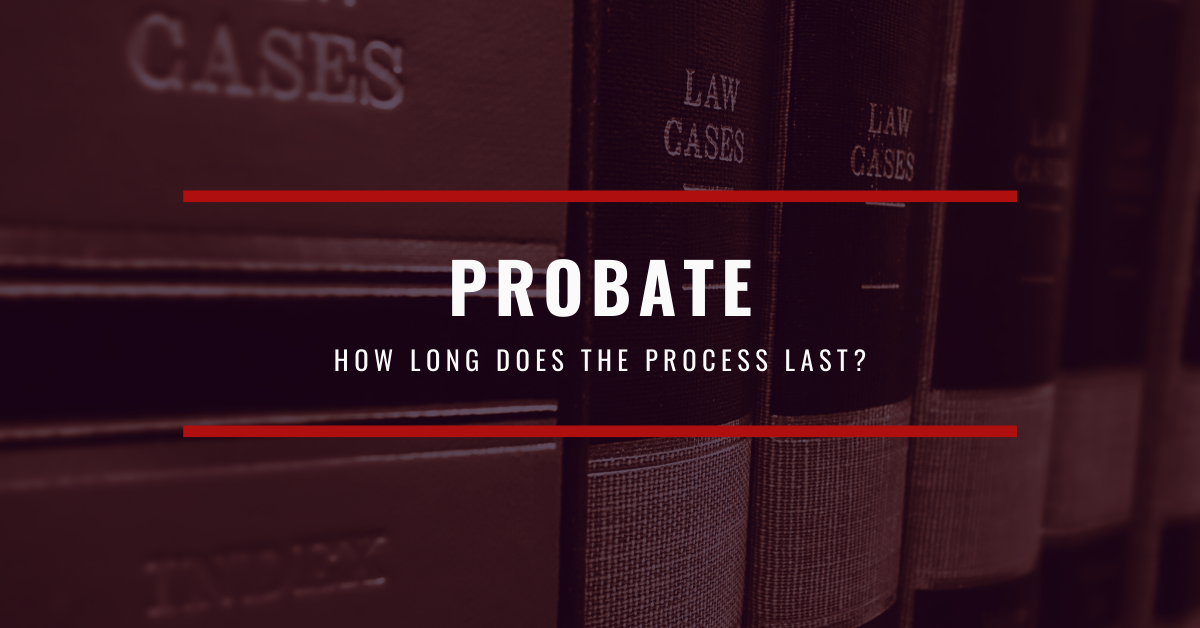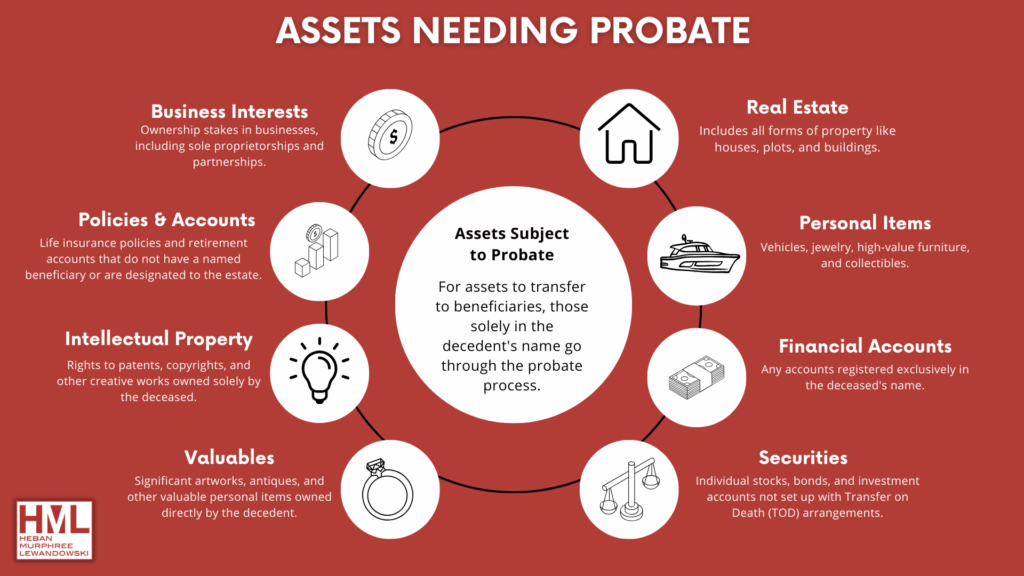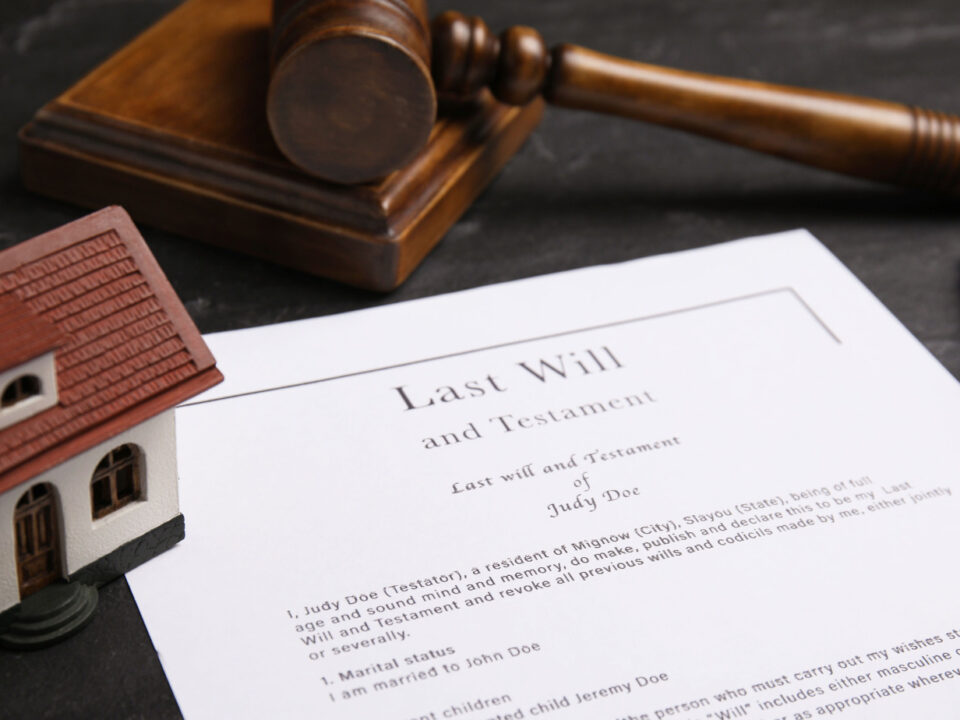- EXPERIENCED LAW FIRM IN TOLEDO, OH
- (419) 662-3100
Probate: How Long Does It Last?

Ohio Probate Law: Everything You Need to Know
November 16, 2019
When Do I Need a Probate Attorney?
November 26, 2019Probate Process Timeline
The legal process that takes place after a person’s death is called probate. Probate can include validating a will, inventorying property and assets, appraising, and more. During this process, property can be used to pay debts and taxes, leaving what’s left to be distributed among those with a rightful claim to the property. How long does the probate process take? That depends on several factors, each case with a different time frame.
Here at Heban, Murphree, & Lewandowski, we take time to understand the complexity of explaining how long your case may take.
What is Probate?
Understanding probate can help give an idea of the process and how long it may take. The process varies case by case. When someone dies, their property and assets can go through a legal process called probate, which involves the courts and lawyers. The property will be given to the appropriate heirs if a last will is present.
If a will is absent, the property will be distributed based on the state’s succession laws. Regardless of whether a will exists, the court will supervise the distribution of the estate. A probate court will also work to dissolve any legal disputes and confirm the validity of the will if one exists.
How Long Does Probate Last?
The standard probate process generally takes 6 months to 1 year, but the exact timeline depends on the complexity of the estate, compliance with procedural requirements, and potential disputes. Here is a breakdown of the typical stages:
- Initial Filing and Administration (0–4 months): Within the first few months after a person’s passing, a petition for probate is prepared and filed with the court. This phase includes validating the will, identifying heirs, and appointing an administrator or executor to manage the estate.
- Court Proceedings and Creditor Notices (3–6 months): During this time, a court hearing on the probate petition occurs. The court issues documents, such as orders for probate and letters of administration, granting authority to the executor. Notices are sent to creditors, informing them of the probate process and allowing them to submit claims against the estate.
- Inventory, Appraisals, and Debt Settlement (6–12 months): The estate is inventoried and appraised to determine its value. Outstanding debts, including medical expenses, state and federal taxes, and administrative costs, are paid from the estate. If the deceased received state medical benefits, the Department of Health Services is notified. Creditor claims are either approved or denied, and notice is sent to the Franchise Tax Board if heirs reside outside the state.
- Tax Clearance and Final Distribution (9–12 months or longer): Tax clearance letters are obtained after settling debts and taxes. A final petition for distribution and accounting is filed with the court, followed by a hearing to approve the distribution plan.
- Asset Distribution and Closure (12+ months): Once the court approves the final distribution, the executor distributes the assets to heirs and beneficiaries. A final discharge order is issued, concluding the probate process.
Complexity of Probate
While the average timeline is around 24 months, complex estates can take much longer. Small estates with few heirs and a will can take as few as 6 to 9 months. If the deceased has investment holdings, it can prolong the probate process.
The same is true if the person who passed held property in other states. The process can also be extended if they were a business owner or owned a large art collection. These circumstances can prolong the probate process from start to finish to 2 years! This is largely because of the need to hire experts in certain areas. These experts range from art experts who appraise a collection to business valuation experts and tax attorneys.
In some cases, probate isn’t needed. For estates valued at less than $100,000 and all given to a surviving spouse, an attorney can file for a release from the administration. Likewise, if the estate is worth less than $35,000 and given to other heirs, the attorney can also file for a release.
Presence of a Will
Having a valid will available will help speed the process along. If the deceased didn’t have a will, however, it can extend the probate process while the courts decide who should be appointed as the estate administrator.
Even if there is a will, if any heirs dispute its contents, the process can take much longer. If an heir doesn’t believe the deceased was in the right frame of mind when the will was created and signed, they can challenge the will. In this case, a court hearing will be scheduled so the heirs’ concerns can be heard and resolved.
The legal process of probate can take as little as six months or as long as two years. Several factors determine how long the process will take. The complexity of an estate will extend the process, as will cases where heirs dispute the will. Small estates may not even require probate. Getting the probate process started immediately ensures the estate closes as quickly as the courts can.
Curious to know more about your particular case? Contact us today for a free case evaluation.








